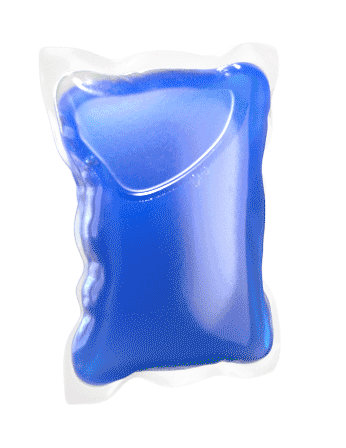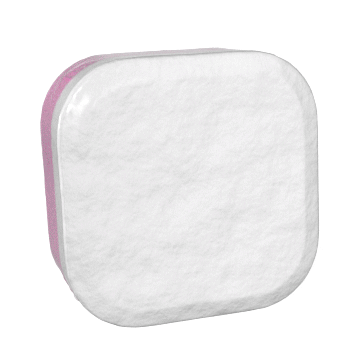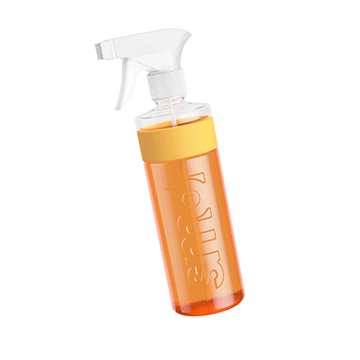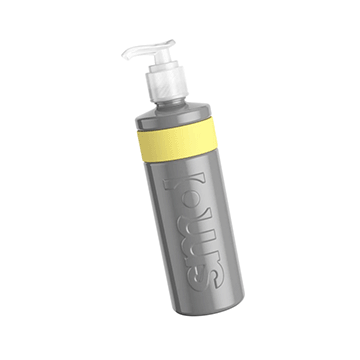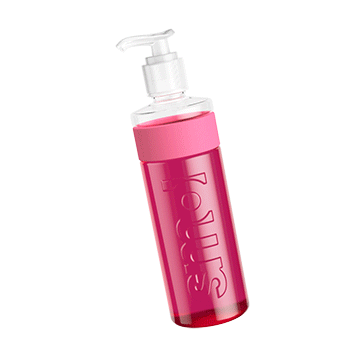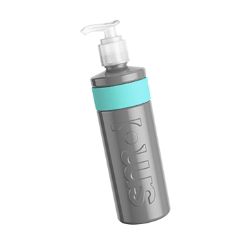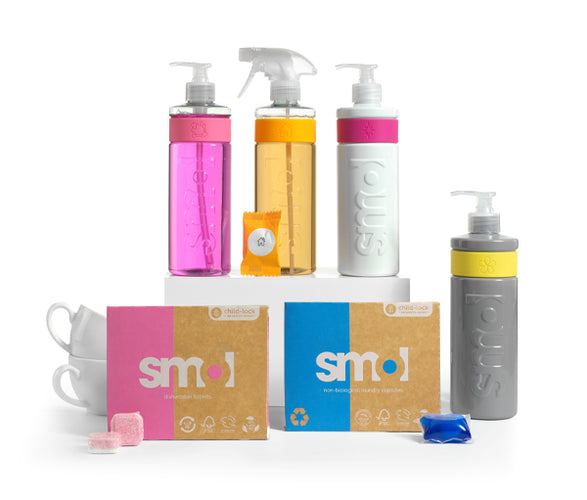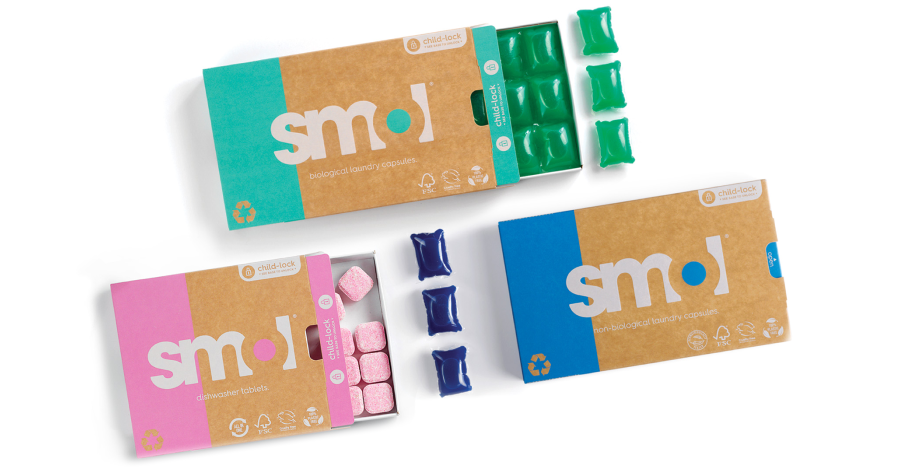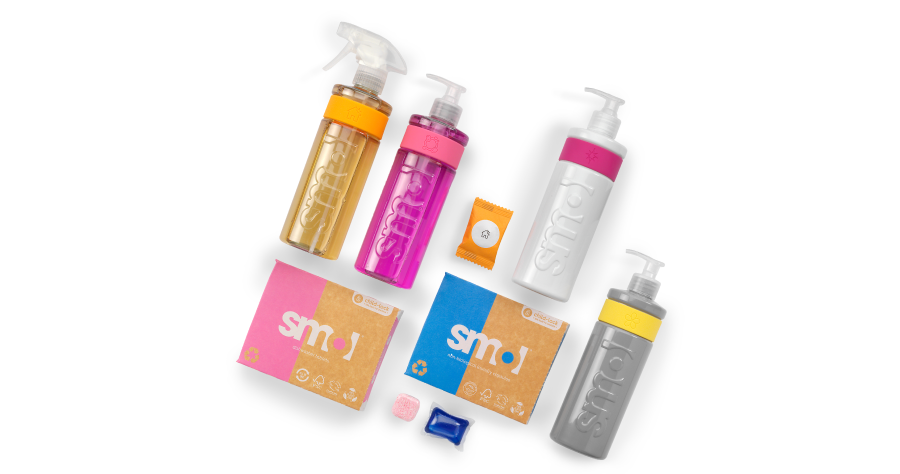
Palm oil can spark a strong reaction… not on your skin but in your mind.
It’s the world’s most widely-used vegetable oil; found in everything from shampoo, biscuits, lipstick, cooking oil and detergent.
so, why does palm oil have a bad reputation?
We’ve all heard how palm oil drives deforestation, destroying the habitats of already endangered species. An estimated 300 football fields of forest are cleared to create palm oil plantations every hour because sadly not all land clearing is being done legally or responsibly.
when in fact palm oil can be good…
The thing is… when it’s farmed properly, and with integrity, palm oil is quite simply a far more sustainable crop than all the other vegetable oils we can produce. One hectare gives us 3.3 tonnes of palm oil compared to just 0.4 tonnes of soy oil. On top of that it really doesn’t need the fertilisers or pesticides that other oil crops require.

In fact it’s SO much more efficient - palm oil satisfies 40% of the global vegetable oil demand whilst using less than 6% of the land used to make all vegetable oil. If we wanted to produce the same amount of soybean oil you would need 10 x more land.
The World Wide Fund for Nature states:
“There are millions of smallholder farmers who depend on producing palm oil for their livelihoods. Boycotting palm oil is not the answer. Instead, we need to demand more action to tackle the issues and go further and faster."
So should we be trying to boycott palm oil?
No.
Doing so would have a significant impact on the farming communities of those countries producing palm oil. In fact The International Union for Conservation of Nature (IUCN) adds:
“Saying ‘no’ to palm oil would likely displace, not halt biodiversity loss.”
What we need to be focused on is ensuring that what we buy has been farmed correctly.
the rise of RSPO.
A group called the Roundtable on Sustainable Palm Oil (RSPO) is now leading various groups from around the globe (including the WWF, Greenpeace, and the United Nations), to put systems in place that ensure oil palm trees are only farmed on land that has been previously cleared (or doesn't require deforestation).
And what’s great for consumers is that a certification process has been put in place.
This means a company (like smol) can ensure they are only purchasing their palm oil from plantations that meet the very strict guidelines for sustainable farming. You simply need to look for the RSPO or Greenpeace label.
And it’s already having an impact.
It’s helping to slow the rate of deforestation, as producers seek to only farm on land that’s already been cleared (or doesn’t need clearing) and it’s also cutting off the revenue stream for irresponsible oil palm tree farmers.
conscious consumption.
As consumers, we should all now be looking to only buy products from companies that are committed to sourcing their palm oil responsibly. Like smol.
When you consciously consume RSPO-sourced products, you will actually then be using one of the most sustainable oil crops in the world.
And any palm oil used in any smol product comes from RSPO certified plantations. It encourages sound farming practices and allows us to use this precious oil without further forest loss.
where we DO use palm oil.
smol only ever uses palm oil derivatives from RSPO certified sources for some of our personal care range. And whilst we don’t use palm oil in any of our household cleaning products, some do require derivatives of palm oil and in this scenario they are also sourced from RSPO manufacturers.
anti-plastic anti-perspirant.
The palm oil derivative Ethylhexyl Palmitate works as the carrier oil for our active ingredients in our anti-perspirant. It makes a great base due to its moisturising effects and helps the deodorant stick glide across your skin. Other deodorants on the market will use more expensive oils, non-vegan options (beeswax) or synthetic (petrochemical) alternatives.
hand and body bars.
Sodium Palmate and Sodium Palm Kernelate are palm oil derivatives that act as a foaming friend for our hand soap bars and moisturising body bars. It creates a bubbly lather for your skin that helps to lift off the dirt and grime from the largest organ in your body!
shampoo bar.
We use a gentle surfactant in our shampoo bar that is derived from palm oil called Polyglyceryl-4 Laurate. It’s basically an alternative to SLS and it creates a lather and cleanses hair really well.
where we DON’T use palm oil.
toothpaste.
Palm oil is often used in toothpaste to create an ingredient known as SLS (Sodium Lauryl Sulfate). We don’t use SLS in our toothpaste because it can cause mouth sensitivity. Instead we use a gentler alternative that comes from coconut.
The decision to remove SLS is down to needing a toothpaste that’s suitable for sensitive gums, and not because we are trying to avoid responsibly sourced palm oil.
a journey.
As with all our ingredients we are on a journey. Everything is always up for review and as we continue to innovate and improve, our ingredients change. If you aren’t sure whether a company uses palm oil as an ingredient, the WWF has a rating tool for brands that shows if they are using sustainable palm oil. You might like to read more here.
START YOUR SMOL JOURNEY